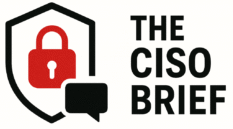Top Highlights
-
Data Breach Details: Krispy Kreme confirmed that a November 2024 cyberattack compromised personal information of 161,676 individuals, including social security numbers and financial data, although there is no evidence of misuse.
-
Cybersecurity Response: The company responded to the breach by detecting unauthorized activity on November 29 and hired external experts to assess the situation, announcing disruptions in online ordering in a December SEC filing.
-
Ransomware Claim: The Play ransomware gang claimed responsibility for the attack, asserting they stole extensive sensitive data and leaked it online after negotiations with Krispy Kreme failed.
- Context of Threat: The Play ransomware group has breached around 300 organizations globally, as acknowledged in a December 2024 advisory by the FBI and cybersecurity agencies, highlighting the growing threat of ransomware attacks.
Key Challenge
In November 2024, a significant cyberattack targeted Krispy Kreme, resulting in the theft of personal information from over 160,000 individuals. This breach, attributed to the notorious Play ransomware gang, involved unauthorized access to the company’s IT systems, first detected on November 29. Krispy Kreme subsequently disclosed the incident in a filing to Maine’s Office of the Attorney General and, in notifications sent to affected individuals on May 22, 2025, revealed that sensitive data, including social security numbers and financial account information, may have been compromised. While the company asserted that there were no immediate reports of identity theft or misuse following the breach, the extent of the incident was alarming.
Krispy Kreme’s operations span 40 countries with an extensive network of 1,521 shops, illustrating its global footprint in the food and beverage industry. After the attack was made public, the Play ransomware gang claimed responsibility, asserting that they had stolen a trove of confidential data, which they proceeded to release on the dark web when negotiations with the company collapsed. Given the surge in ransomware attacks worldwide, as highlighted by the FBI’s advisory indicating that around 300 organizations had fallen victim to Play, this incident underscores the urgent need for robust cybersecurity measures across large corporations.
Potential Risks
The recent cyberattack on Krispy Kreme, resulting in the theft of personal information from over 160,000 individuals, presents a cascade of risks not only for the doughnut chain but also for various businesses, users, and organizations globally. As the Play ransomware gang continues to target an ever-expanding number of entities — with claims of affecting around 300 organizations — the implications for interconnected businesses are profound. First, such breaches erode customer trust, compelling users to reconsider their loyalty to affected brands, thereby jeopardizing sales and market position across retail partnerships like those with McDonald’s. Additionally, the stolen sensitive data, including social security numbers and financial information, creates a heightened risk of identity theft and fraud, which could reverberate through industries reliant on personal data integrity. Organizations with shared supply chains or customer bases may also experience reputational fallout; as consumers associate breaches with larger corporate networks, companies risk being ensnared by guilt by association. Ultimately, as the threat landscape evolves, the ramifications of Krispy Kreme’s breach underscore the necessity for robust cybersecurity measures across the spectrum to mitigate both immediate impacts and longer-term ramifications in a hyper-connected commercial environment.
Possible Actions
In an era where personal data constitutes a vital asset, the ramifications of a data breach can be profoundly detrimental.
Mitigation Steps
- Immediate Notification: Inform affected individuals promptly to foster transparency and trust.
- Monitoring Services: Offer credit monitoring and fraud detection services to mitigate identity theft risks.
- System Assessment: Conduct a comprehensive analysis of affected systems to identify vulnerabilities.
- Strengthening Security: Implement multi-factor authentication and enhance encryption protocols.
- Training Initiatives: Conduct training for employees on data protection and phishing awareness.
- Incident Response Plan: Enhance existing incident response plans based on breach findings.
NIST CSF Guidance
NIST Cybersecurity Framework emphasizes a proactive approach to risk management. The relevant Special Publication (SP) to consult for detailed guidance is SP 800-61, which focuses on computer security incident handling. This framework underscores the importance of preparation, detection, and response strategies in minimizing the fallout from breaches.
Continue Your Cyber Journey
Discover cutting-edge developments in Emerging Tech and industry Insights.
Learn more about global cybersecurity standards through the NIST Cybersecurity Framework.
Disclaimer: The information provided may not always be accurate or up to date. Please do your own research, as the cybersecurity landscape evolves rapidly. Intended for secondary references purposes only.
Cyberattacks-V1

